- This event has passed.
TYC Seminar: The Crystal Isometry Principle infers chemistry from geometry – Vitaliy Kurlin, University of Liverpool
15 October 2025 @ 4:00 pm – 5:00 pm

Registration is free but required:
Structures of solid crystalline materials (periodic crystals) are determined in a rigid form and hence keep all their properties under rigid motion within the same ambient environment. However, structures that have different rigid shapes can substantially differ in properties and hence should be reliably distinguished, for example, polymorphs with different solubility. Conventional representations based on reduced cells discontinuously change under almost any perturbation of atoms, which led to the accumulation of near-duplicates in major databases of experimental structures [1].
This ambiguity was resolved by generically complete and continuous invariants that distinguish all non-duplicate periodic crystals (about 1.5 million) in major databases within a few hours on a desktop [2]. Now, any dataset of experimental or simulated crystals can be visualised on maps with analytically defined invariant coordinates [3], which are invertible to any generic periodic structure in 3 dimensions, uniquely under any distance-preserving transformation [4]. Inspired by Richard Feynman’s hint in Fig.7 of his first lecture on physics, the Crystal Isometry Principle says that any real periodic material is uniquely determined by a precise enough geometry of atomic centers without chemical elements, under the same ambient conditions.
[1] O.Anosova, V.Kurlin, M.Senechal. The importance of definitions in crystallography. IUCrJ 11 (4), 453-463 (2024).
[2] D.Widdowson, V.Kurlin. Resolving the data ambiguity for periodic crystals. NeurIPS 2022, v.35, p.24625-24638.
[3] D.Widdowson, V.Kurlin. Continuous invariant-based maps of the Cambridge Structural Database. Crystal Growth & Design, 24(13), 5627–5636 (2024).
[4] D.Widdowson, V.Kurlin. Geographic-style maps with a local novelty distance help navigate in the materials space. Scientific Reports, v.15, 27588 (2025)
